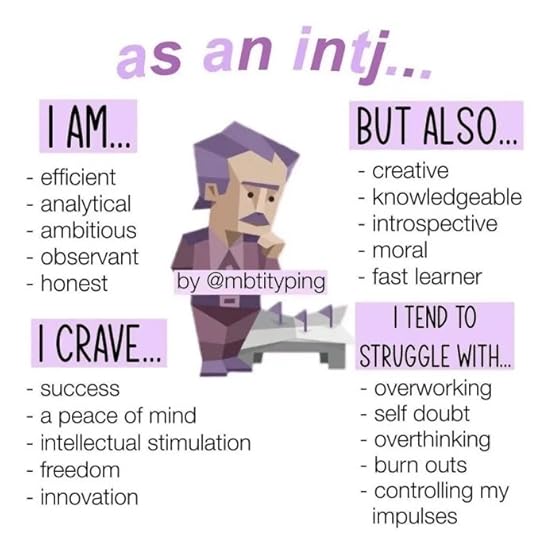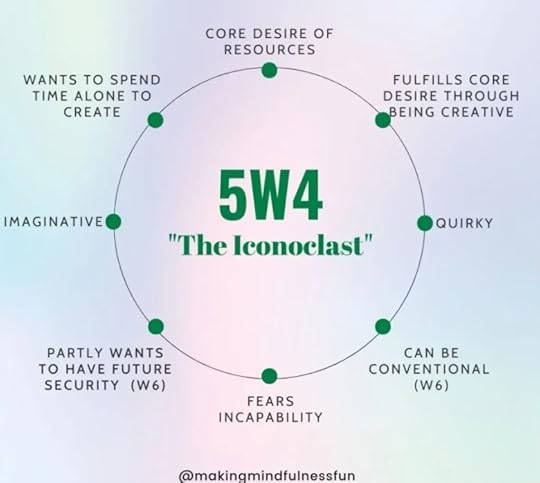From Myers-Briggs to Enneagram: What I’ve Learned About Myself as a Writer
How do you feel about personality type tests?
Personally, I’m a huge fan – which makes total sense because, according to the Myers-Briggs test, I’m an INTJ (spoiler alert: we like taking personality tests, lol).
Myers-Briggs is a personality assessment that sorts people into 16 types based on how they prefer to focus attention (introvert vs. extrovert), take in information (sensing vs. intuition), make decisions (thinking vs. feeling), and approach life (judging vs. perceiving). It’s designed to highlight natural strengths and tendencies rather than measure ability or intelligence.
As an INTJ (The Mastermind), I’m someone who’s strategic, independent, and future-focused. People from my type naturally see patterns and long-term possibilities. They’re logical and decisive, preferring efficiency and planning over spontaneity, but may come across as reserved or intense.

I’ve only recently started diving into the Enneagram, a personality system that identifies nine core types, each based on deep motivations, fears, and desires rather than just surface behaviour. It helps people understand not only how they act, but why they act that way, offering insight into personal growth, relationships, and stress patterns.
In this system, I identify as Type 5 (The Investigator). This type is defined by a drive to understand the world and feel competent through knowledge. Fives are curious, analytical, and independent, but they can also be withdrawn and protective of their time and energy, fearing they won’t have enough inner resources to cope with life’s demands.
More specifically, I’m a Type 5w4 (The Iconoclast) – someone who is analytical, private, and deeply curious like a core Five, but with the Four wing’s creative, individualistic flair. They often blend sharp intellect with emotional depth, making them insightful, original, and sometimes a little withdrawn or eccentric.

ChatGPT tells me that as a writer with these personality types, I combine strategy, depth, and originality:
Strategic Vision (INTJ): You’re skilled at seeing the bigger picture, structuring complex plots, and weaving long-term arcs with purpose.Analytical Depth (Type 5): Your curiosity and need to understand mean your worlds, systems, and characters feel well-researched, layered, and believable.Creative Uniqueness (4 wing): You bring a distinct voice and imaginative flair, infusing your work with originality, symbolism, and emotional resonance.Focus and Discipline (INTJ): Once you commit, you can work methodically toward finishing large projects without losing sight of your goals.Insightful Themes (5w4): You naturally explore profound questions about identity, truth, and human nature, giving your stories intellectual and emotional weight.It also says say my main challenges might be:
Perfectionism & Overplanning: You may get stuck refining outlines, worldbuilding, or systems instead of drafting, because you want everything “just right” before starting.Isolation: Both INTJ and 5w4 lean toward independence, which can make it hard to share your work early, seek feedback, or feel part of a writing community.Emotional Withholding: While you think deeply, you might struggle to put raw emotion on the page, favouring intellect over vulnerability – but readers often crave both.Creative Restlessness: The 4 wing can make you long for uniqueness, so you may abandon projects if they feel too ordinary or similar to existing works.Energy Management: Type 5s guard their inner resources; long writing sessions or deadlines may leave you mentally drained if you don’t pace yourself.This assessment is pretty damn accurate, and if you’re still reading this I bet you know more about me now than you really wanted to! But I think this is a good exercise for anyone who wants to understand themselves better and to know what they’re really good at and what they might need to work at improving.
Or maybe that just my INTJ-Type 5 mentality, and you might find this extremely boring and pointless, hehe.
One place my INTJ side really shows up is in the way I plot the Mythical Menagerie series. I can’t help but think in terms of patterns and long-term arcs, which means I’ll happily spend hours untangling timelines so that events across different books overlap seamlessly. For example, in Keepers’ Bane and Council’s Prize, I had to make sure the characters’ paths crossed without contradicting the larger story. That kind of big-picture planning is both a puzzle and a thrill for me – definitely the strategist in action.
On the other hand, my Type 5w4 side tends to come out most strongly in my flash fiction. Stories like The Moonveil Bloom or Fortune Teller’s Fate lean heavily into atmosphere, symbolism, and emotional resonance. I love taking a single haunting image – like a flower that only blooms under moonlight, or a seer faced with nothing instead of visions – and building a story around it. That mix of curiosity and creative flair scratches both the Investigator and Iconoclast parts of my personality, and it’s probably why those short, lyrical pieces feel so different from my longer novels.
I know that one of my personal weak points as a writer is getting people right, and I’m hoping to deep dive into the Enneagram some more to see if I can learn to understand my characters better. Hopefully that will help me to get my future books pretty close to perfect.
And that’s all an INTJ-Type 5 can ask for, isn’t it?
Have you completed any personality assessment tests? Where do you fall on the Myers-Briggs or Enneagram types? Are there any other personality systems you think would be useful for me to look at?



